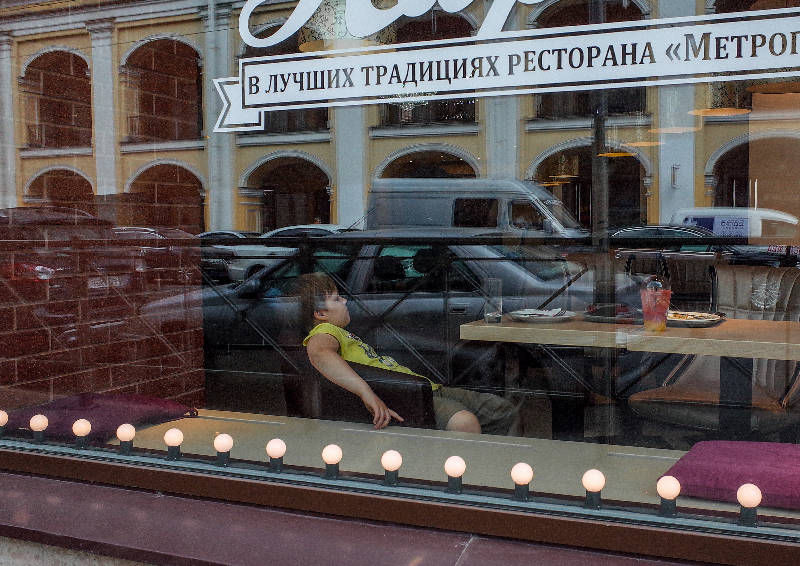
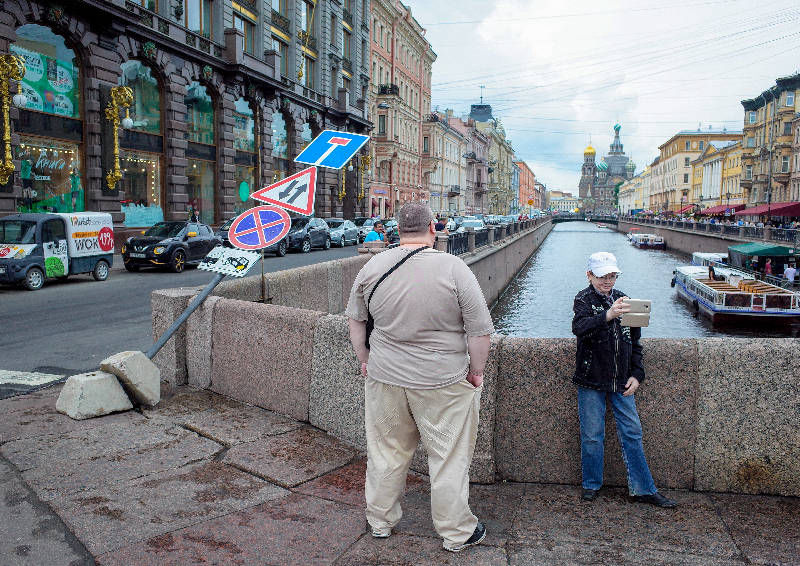
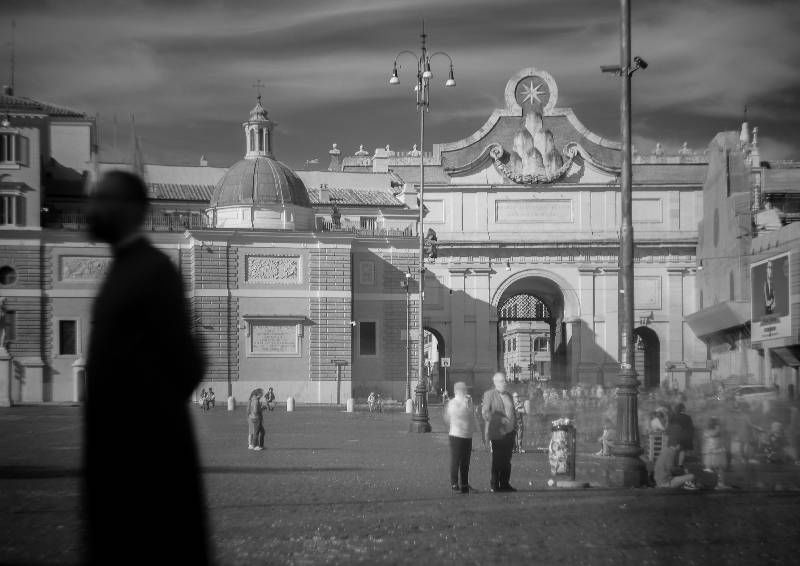
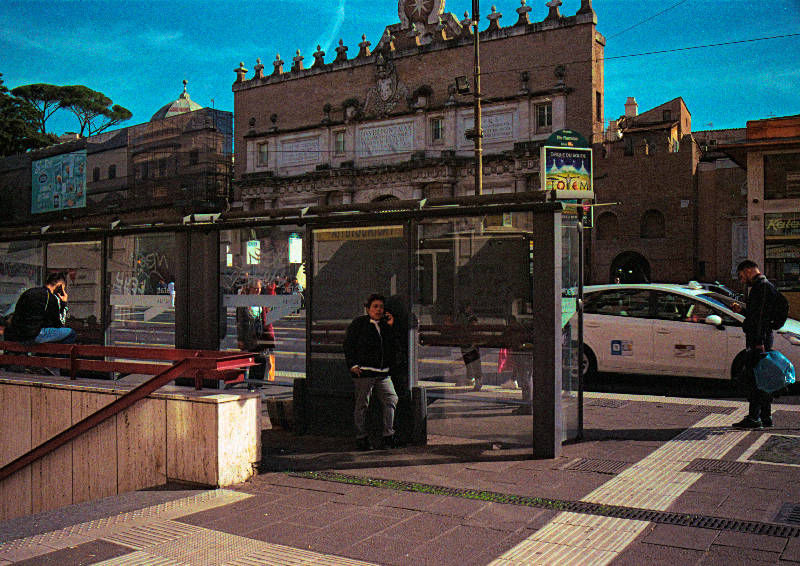
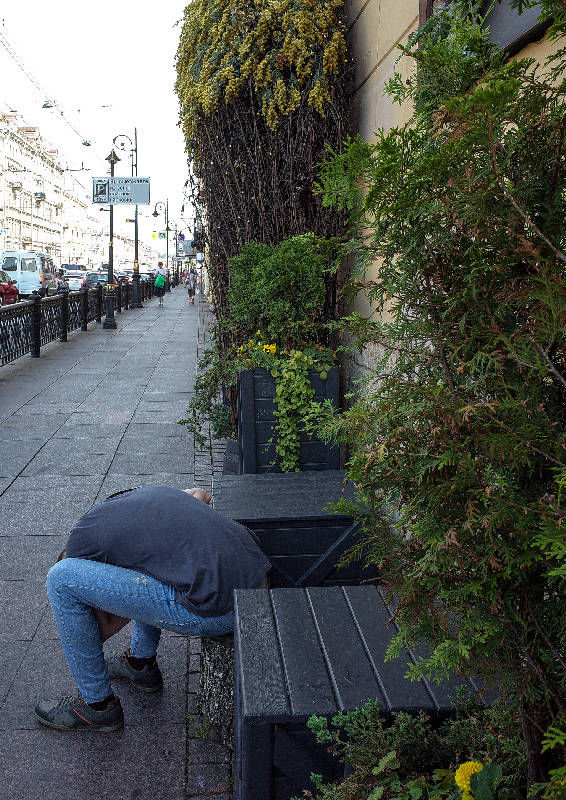
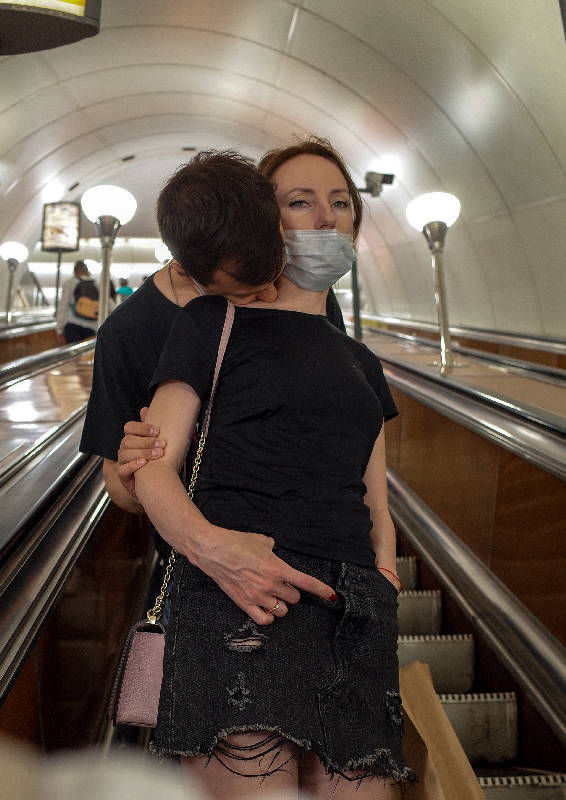
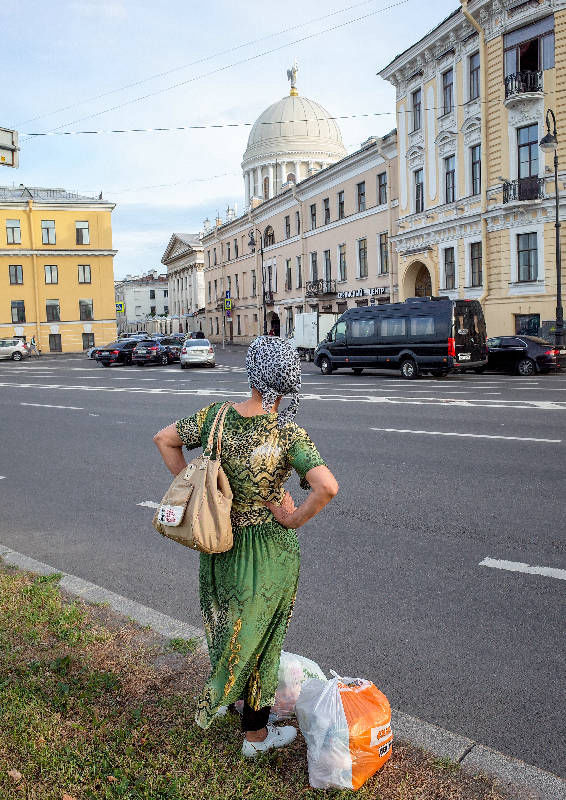
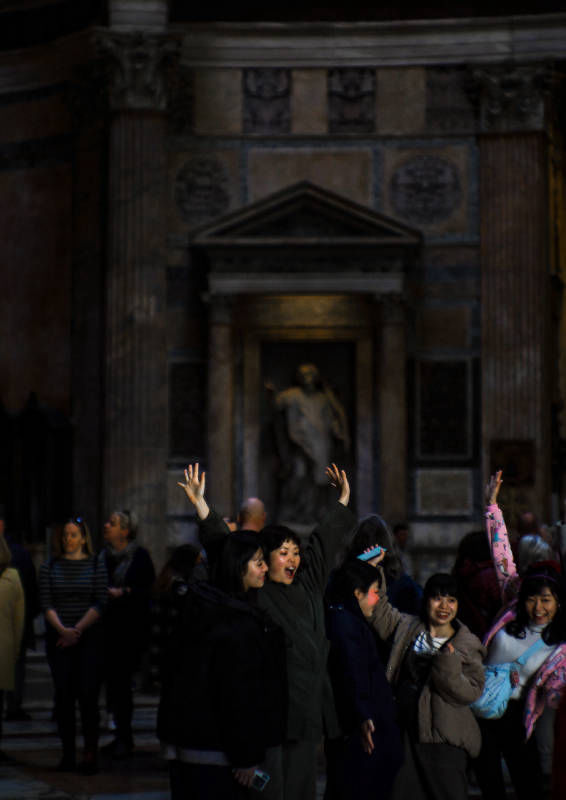
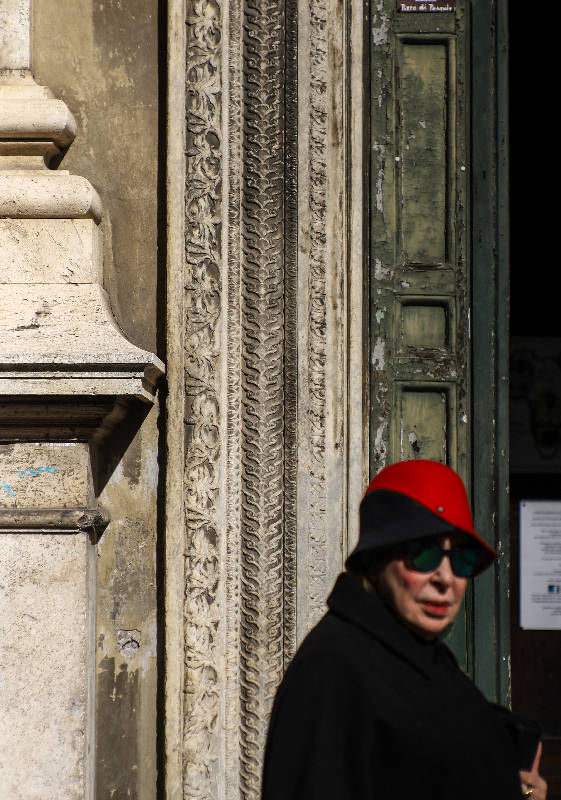
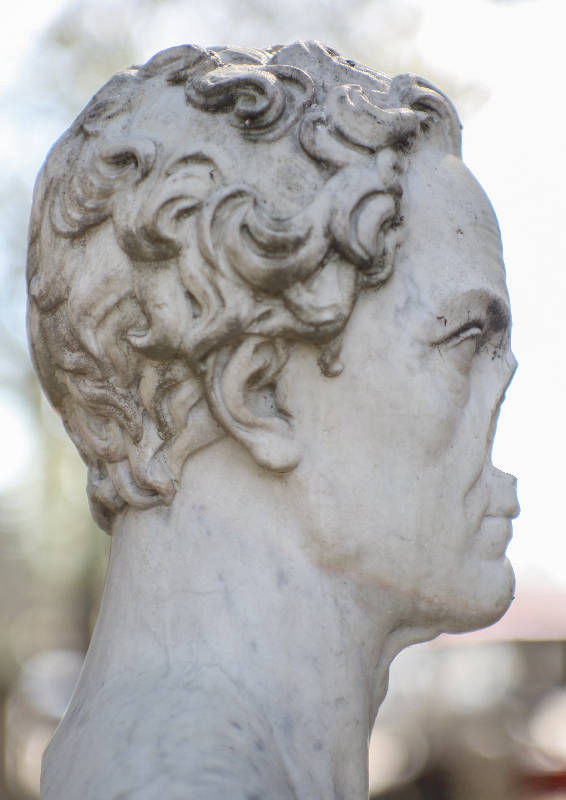
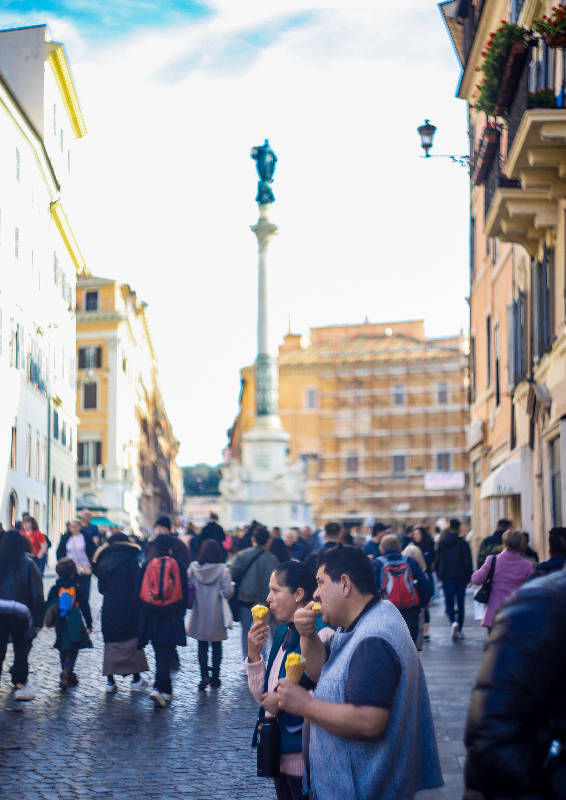
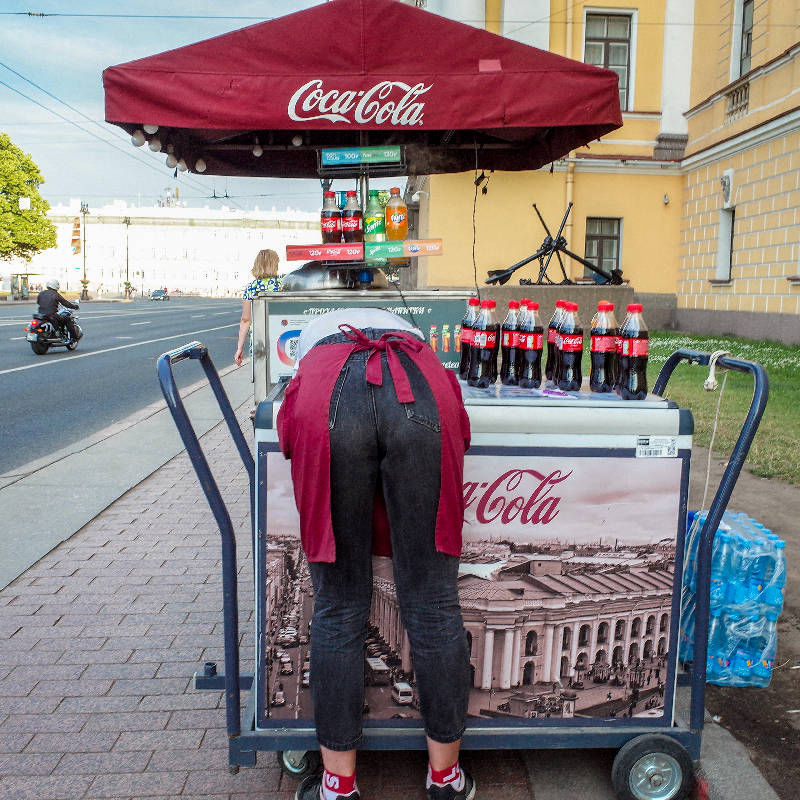
At the heart of all the works presented is the author's ironic view of a person surrounded by the pretentious architecture of imperial cities, designed to inspire, shock, inspire and lead to sacred awe. In the late liberal-bourgeois era, the shadows of the past turned into a lucrative enterprise selling historical tales, souvenirs, spectacles and infrastructure to serve the flow of consumers of places. A tourist who finds himself in the eternal city shows only the scale of the absurdity of this eternity in relation to human ordinaryness. Historical novels depict us unusual people of the past, who lived with lofty thoughts and exploits of the flesh and spirit. But the historical truth is in a huge gap between the reality of human existence of myths, historical myths into which our day is immersed. Emperors were let down by their bellies, and the peasants thought about how to live the year, the proletarian and the warrior died young in the name of the splendor of the monuments of historical epochs. And, despite the sermons of important uncles in black dresses, the life of listeners of sacred stories looked far from sacred, tragic, comical, humanly absurd.